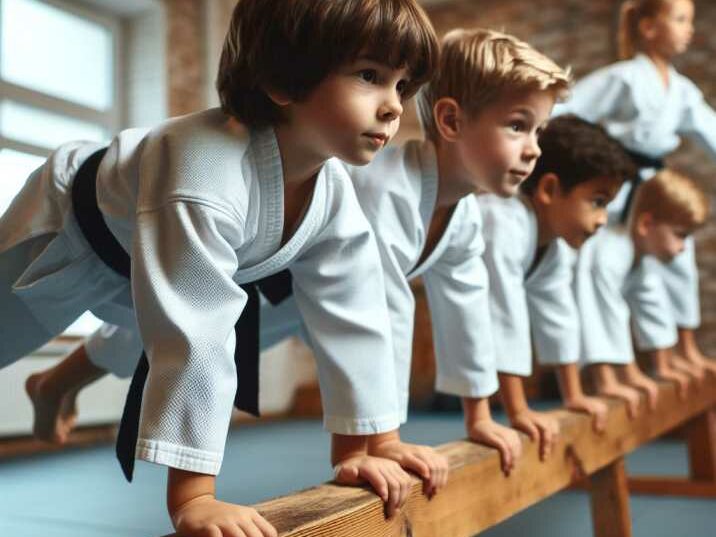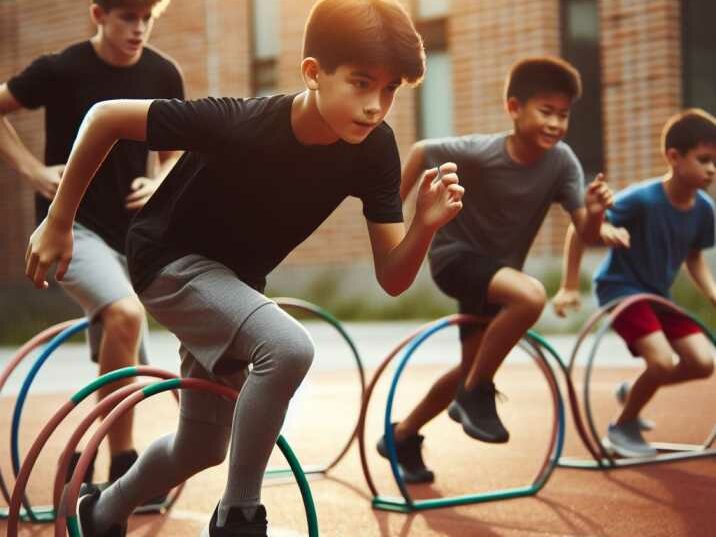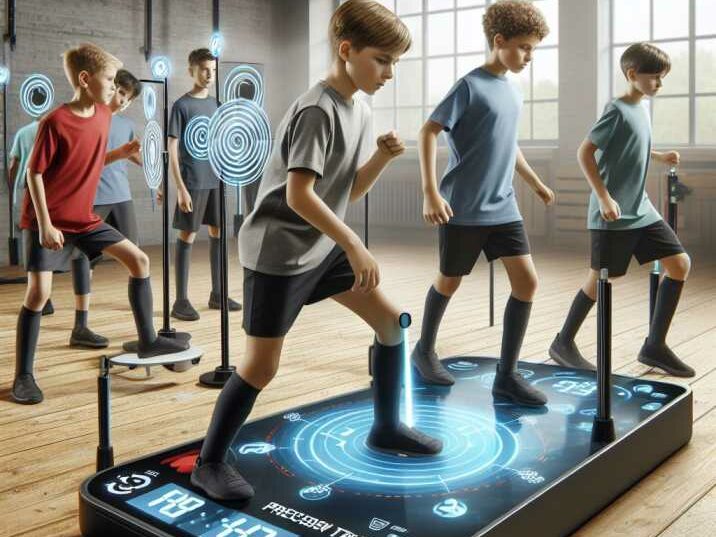Obstacle Courses with Martial Arts
Table of Contents
Introduction
In the world of martial arts training for kids, the incorporation of obstacle course games has emerged as a game-changer. These innovative activities not only add an element of excitement but also enhance the overall experience for young enthusiasts. In this article, we delve into the dynamics of “Obstacle Courses with Martial Arts, Making Martial Arts Training Enjoyable for Kids,” exploring the benefits, creative approaches, and expert insights that make this fusion a winning formula.
The Power of Obstacle Course Games
Obstacle course games inject a sense of playfulness into the disciplined world of martial arts, transforming the training environment into an interactive and engaging space for children. The fusion of structured martial arts routines with obstacle challenges not only improves physical fitness but also sharpens mental agility and problem-solving skills.
Creative Approaches to Incorporate Obstacle Courses
Balance Beam Challenges: Integrating narrow beams into the training routine enhances balance and coordination. This not only mimics real-world scenarios but also adds an element of fun, creating a dynamic and engaging platform for kids to develop their martial arts skills.

Agility Hoops and Tunnels: Courses with hoops and tunnels are designed to enhance agility and speed. This dynamic approach keeps kids on their toes, infusing a sense of adventure into their martial arts training. As they navigate through these obstacles, they learn to move with precision and quick reflexes.
Interactive Targets: Incorporating interactive targets that respond to strikes and kicks takes martial arts training to a whole new level. This not only makes training enjoyable but also allows for measurable progress in martial arts skills. Kids experience the satisfaction of hitting targets accurately, boosting their confidence and motivation.
Benefits of Obstacle Courses with Martial Arts Training
- Enhanced Physical Fitness: Obstacle courses provide a full-body workout, improving strength, flexibility, and cardiovascular health. The varied movements required to navigate obstacles contribute to well-rounded physical development.
- Improved Concentration and Focus: Negotiating obstacles requires mental focus, helping children develop concentration skills essential for martial arts training. The ability to stay focused amid challenges translates into better overall performance in martial arts.
- Team Building and Social Skills: Group obstacle courses foster teamwork and collaboration, crucial aspects of martial arts that extend beyond individual performance. As kids work together to overcome challenges, they build social skills and camaraderie.
- Boosted Confidence: Overcoming physical challenges builds confidence and resilience in young martial artists. As they conquer obstacles, they gain a sense of accomplishment that positively influences their self-esteem.

Expert Insights on the Fusion
Renowned martial arts instructor, Sensei Sakura Tanaka, emphasizes the importance of blending tradition with innovation. Obstacle Courses with Martial Arts , games inject a sense of joy into the training process. When kids enjoy what they’re doing, they are more likely to stay committed to their martial arts journey.” Incorporating these games not only makes training enjoyable but also instills a lifelong love for martial arts.
Information-Based Table: Key Elements of Obstacle Course Games
| Obstacle Type | Benefits | Recommended Age Group |
|---|---|---|
| Balance Beam | Enhances balance and coordination | 5-8 years |
| Agility Hoops/Tunnels | Improves agility and speed | 8-12 years |
| Interactive Targets | Develops precision and striking skills | 10-15 years |
Tracing the transformation of traditional martial arts training methods for children in response to evolving educational and developmental philosophies.
Why Obstacle Courses with Martial Arts ? Unveiling the Psychology
- Obstacle courses tap into the psychology of learning through play. By combining physical challenges with martial arts techniques, kids not only retain essential skills but also cultivate a passion for the discipline.
Designing Effective Obstacle Courses: Tips from the Pros
- Designing obstacle courses requires thoughtful planning. Experts recommend a balance between challenges and achievements, ensuring that the courses are age-appropriate, safe, and aligned with martial arts principles.
Success Stories: Transformative Impact on Kids’ Martial Arts Journeys
- Numerous success stories attest to the transformative impact of integrating obstacle course games into martial arts training. These stories highlight improved physical fitness, enhanced discipline, and a lifelong love for martial arts among children.

Conclusion
In conclusion, the integration of Obstacle Courses with Martial Arts training for kids transcends the conventional, infusing vitality and enjoyment into the process. The holistic benefits, creative approaches, and expert insights underscore the effectiveness of this fusion, making it a must-consider for parents and martial arts instructors alike.
FAQs
- Are obstacle course games suitable for all age groups?
- Yes, obstacle course games can be adapted for various age groups, with modifications to suit different skill levels.
- How do obstacle courses contribute to martial arts skill development?
- Obstacle courses enhance balance, agility, and focus, directly improving martial arts skills.
- Are there safety concerns with obstacle course games?
- Safety is paramount. Ensure proper supervision, age-appropriate challenges, and a well-maintained training area.
- Can obstacle courses be integrated into traditional martial arts classes?
- Absolutely. Many martial arts schools are successfully incorporating obstacle courses to make training more dynamic.
- Do kids enjoy obstacle course games more than traditional training methods?
- In general, yes. The element of fun makes kids more enthusiastic and committed to their training.
- How often should obstacle course games be included in martial arts training sessions?
- It depends on the training program, but incorporating obstacle courses once or twice a week is a good start.
- What are some DIY obstacle course ideas for home practice?
- Use household items like cushions, hula hoops, and cones to create simple yet effective obstacle courses.
- Can obstacle courses be adapted for virtual or online martial arts classes?
- Yes, with creativity. Instructors can guide students through virtual obstacle courses using common household items.
- Are there specific benefits for children with attention or focus issues?
- Yes, the dynamic nature of obstacle courses helps improve attention and focus in children with concentration challenges.
- How can parents encourage their kids to embrace martial arts training with obstacle courses?
- Participate together! Make it a family activity to create a positive and supportive environment.
- Are there competitive aspects to obstacle course games in martial arts?
- Some programs introduce friendly competitions, fostering a sense of challenge and achievement among participants.
- Can obstacle courses be adapted for martial arts-themed birthday parties?
- Absolutely! It adds a unique and enjoyable element to the celebration, keeping kids active and entertained.


